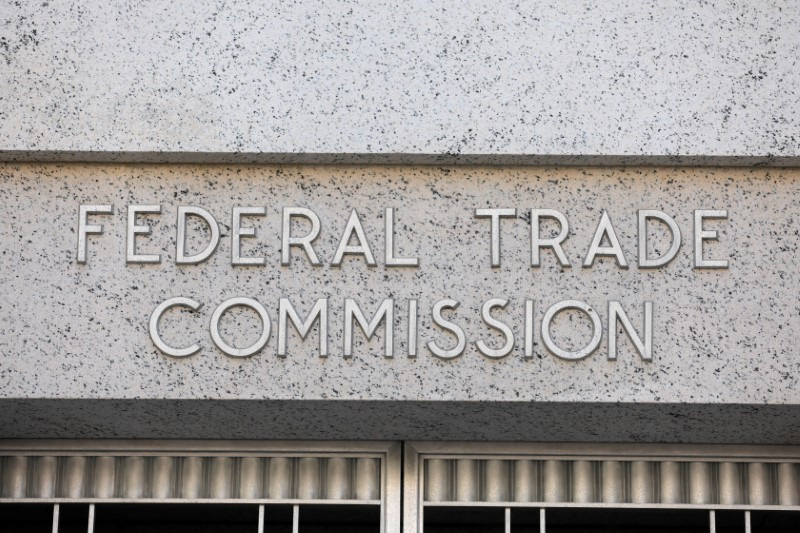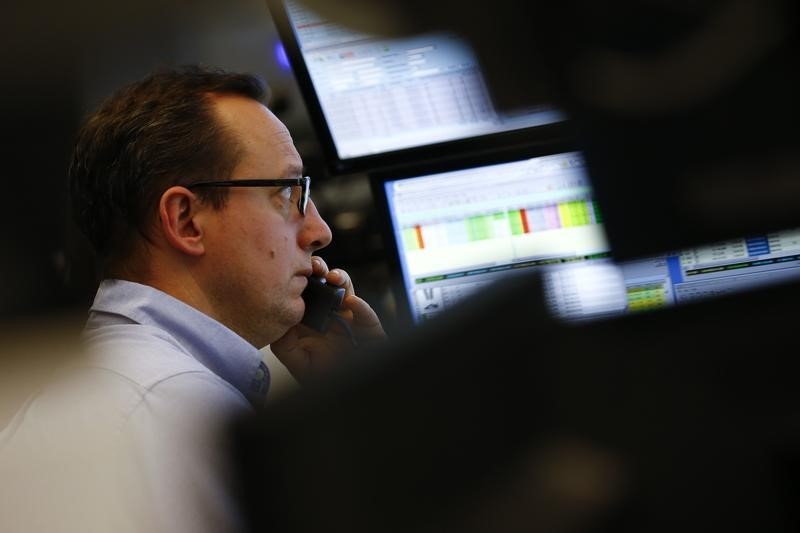By Siddharth Cavale
NEW YORK (Reuters) – The U.S. Federal Trade Commission urged a federal judge in New York in a lawsuit on Monday to block the $8.5 billion merger of Tapestry (NYSE:) with rival handbag maker Capri Holdings ( NYSE:), arguing that this is the fierce competition in the market for ‘accessible luxury’.
The FTC said the merger announced in August 2023 would eliminate competition between Tapestry’s companies. Coach and Capri’s Kate Spade and Michael Kors brands, which has resulted in better prices, discounts and promotions for consumers and wages and benefits for employees.
The deal would also give Tapestry a dominant share of the “accessible luxury” handbag market, controlling more than 50% of it once the deal closes, the FTC said. The regulator defined the “accessible luxury” market as handbags selling for between $100 and less than $1,000, which makes up most of Coach and Kors’ lines.
During the first day of the trial, which was attended by Henry Liu, director of the FTC’s Bureau of Competition, the antitrust regulator tried to use the companies’ own internal emails against them, while the defense tried to poke holes in the way she defined the rules. “accessible luxury” market.
Tapestry attorney Lawrence Buterman countered that the FTC’s view does not reflect the “commercial reality” of the handbag market, where customers are inundated with choices in that price range.
“The commercial reality is that customers have a Gucci bag next to a Kors bag next to a Calvin Klein bag,” he said.
The FTC’s market definitions are also critical in its case to block the takeover of Albertsons (NYSE:) by supermarket chain Kroger (NYSE:), which is currently on trial in Portland, Oregon.
MONITOR ‘EVERY MOVEMENT’
In her opening statement, FTC chief counsel Nicole Lindquist told U.S. District Judge Jennifer Rochon that the burden of a Tapestry-Capri merger would be borne by “America’s working and middle-class women” by increasing competition and innovation. reduce and increase prices.
The FTC presented emails showing how Capri’s CEO John Idol and his team closely monitored Coach’s prices to stay competitive.
“Look at these prices!” Idol wrote in one of the emails after visiting Coach’s outlet website. Idol urged his deputies to come up with better designs and solutions to compete against Coach. In another email from the FTC, Idol asks to speak to a deputy about the design of a Coach handbag.
“They monitor and respond to each other’s every move,” said Lindquist, the FTC attorney.
Capri’s lawyer said Michael Kors has lost relevance since 2016 and increasing competition has driven the average price of a Kors handbag down to $92, below the FTC’s threshold for accessible luxury.
Philippa Newman, president of accessories and footwear for Michael Kors, also testified Monday that this loss of relevance has caused it to lose retail customers like Nordstrom (NYSE:) and discontinue product lines.
She explained that one of the reasons for discontinuing the Parker handbag line was that, despite the high quality, comparable to a “Rolls Royce (LON:)” handbags, (the Kors customer) “only wants to pay for a Fiat .”
The case marks a busy September for the FTC, which also challenges the way Alphabet (NASDAQ:) generates revenue from advertising through a system that prosecutors say hurts news publishers.

Monday’s trial is expected to last a week and a half, with testimony from Tapestry CEO Joanne Crevoiserat and designer Michael Kors in the coming days.
The process follows the merger’s approval by antitrust regulators in Japan and the European Union earlier this year.


